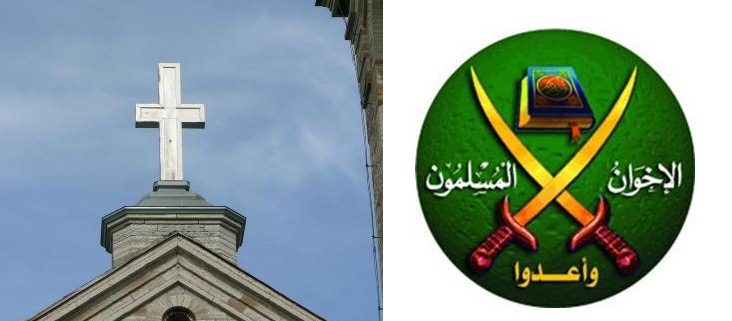Does the Muslim Brotherhood (MB) group believe in freedom of belief and non-Muslims’ right to exercise their own religious rituals freely and to build their houses and places of worship?
How does the Muslim Brotherhood view the evangelization and preaching? Do they see it in the framework of colonial phenomenon?
Does the Muslim Brotherhood believe in the principle “there is no compulsion in religion”? How do they view the issue of apostasy?
If the Muslim Brotherhood ascended again to power in Egypt and met their political aspiration, how would they deal with non-Muslims?
The answer to all above-mentioned questions can be found in the statements and writings of the Muslim Brotherhood’s leaders. Most of these answers are not straight-forward, as they jumble between religion and politics. The Brotherhood attempts to hold the stick from the middle; however fatwas (religious rulings or edicts) issued by the Brotherhood’s magazine Al-Da’awa (The Call), in its 2nd edition, best manifest this concept.
In a religious context, the word fatwa carries more meanings. This is because when a Muslim needs an answer from an Islamic point of view, they ask an Islamic scholar, and the answer is known as a fatwa.
These fatwas are considered the ideological declarations expressing the vision adopted by the group from an intellectual perspective that does not take into account political calculations. The fatwas present the Muslim Brotherhood’s vision as the only vision compatible with Islamic teachings.
Many can issue extremist fatwas on an individual basis, reflecting their limited knowledge of religion and their limited realization of the changes witnessed in the world. However, those people do not affiliate to a political Islamic group seeking to grab power since over 75 years ago. It is not logical to limit their vision in the circle of ordinary diligence, as they express the approach they would adopt after their ascent to power.
The Building of Churches in Islamic Countries
Edition 56 of December, 1980 includes three questions over the issues related to non-Muslims. Member of the group’s Guidance Office, Mohamed Abdullah Al Khateeb, answered all of them. The first question was on the Islamic ruling to build churches in Islamic countries.
The group’s mufti answered that the rule to build churches in the Islamic countries should be divided into three major sections:
First: It is not permissible to erect churches in cities that have been recently built by Muslims, including districts of Maadi, 10th of Ramadan, and Helwan.
Second: Cities including Egypt’s Alexandria and Turkey’s Constantinople, that were conquered through war, churches and other places of worship should not be built in these cities. According to some scholars, Muslims should demolish the churches that already stand there, as these cities came into the possession of Muslims.
Third: Muslims should maintain the churches in cities conquered by Muslims upon agreement with their residents to prevent the building of any new churches and rebuilding of what was demolished of them. According to Imam Al-Shafi‘i and Ahmed Bin Hanbal (Islamic jurists), churches should not be built in these cities unless there is a stipulated condition of the establishment of churches in the agreement concluded by the two parties before conquest. It is not permissible to build a new church in an Islamic country.
This means that the cities built by Muslims do not accommodate non-Muslims, which contains a large number of fallacies.
The First Fallacy: The Egyptian cities he mentioned were built by the Egyptians; Muslims and Christians. Also, the constitutional principle of citizenship does not prevent the Egyptian citizen from living in any place that suits his social and economic conditions. According to this principle, The Egyptian Christian citizens living in Maadi, 10th of Ramadan, and Helwan (e.g.) enjoy the right to exercise their religious freedoms.
However, this original right seems impossible to be given, in light of the ban imposed by the sheikh who demanded the allocation of a limited area for Christian citizens.








































admin in: How the Muslim Brotherhood betrayed Saudi Arabia?
Great article with insight ...
https://www.viagrapascherfr.com/achat-sildenafil-pfizer-tarif/ in: Cross-region cooperation between anti-terrorism agencies needed
Hello there, just became aware of your blog through Google, and found ...